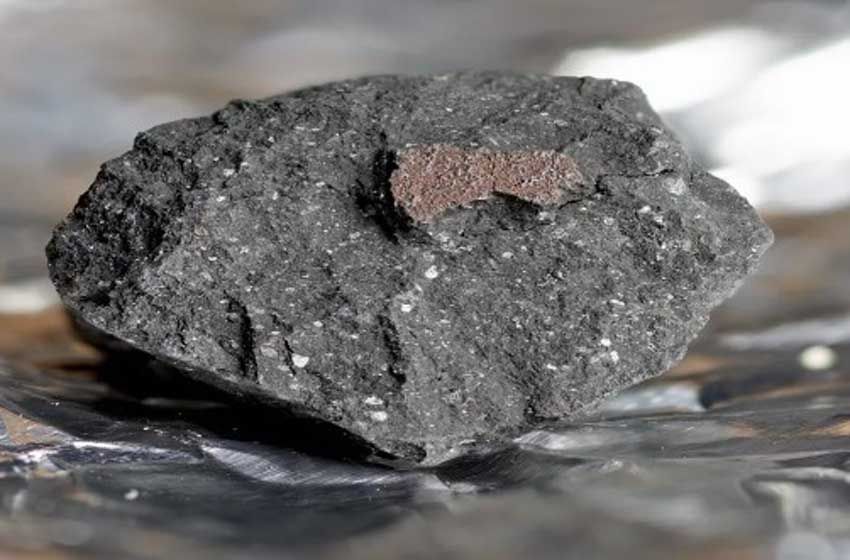Loading…
The meteorite that fell into Winchcombe’s driveway in February 2021 contained water similar in chemical composition to water on Earth. Photo/Trustees of the Natural History Museum/Live Science
Scientists think that after the Earth cooled, a flurry of icy asteroids from outside the solar system brought frozen water to Earth and melted it. Now, a new analysis of the Winchcombe meteorite, published Nov. 16 in the journal Science Advances, has confirmed that theory.
“This analysis of the Winchcombe meteorite provides insight into how Earth might have water as a source of life. Researchers will continue to work on this specimen for years to come, unlocking more secrets about the origins of our solar system,” said Luke Daly, Lecturer in Planetary Geosciences at the University of Glasgow. /2022).
Read also; This is the difference between meteors, meteorites and asteroids
The space rock, a rare carbon-rich type called a carbonaceous chondrite, was collected within hours of being crushed to the ground. Most remain untouched, making it one of the purest meteorites available for analysis.
To analyze the minerals and elements in the rock, researchers polish, heat and bombard it with X-rays and lasers. This method revealed that it came from an asteroid orbiting Jupiter and that 11% of the meteorite’s mass was water.
The hydrogen in asteroid water comes in two forms, namely regular hydrogen and an isotope of hydrogen known as deuterium, which forms “heavy water.” Scientists found that the ratio of hydrogen to deuterium matched the ratio found in water on Earth, strongly implying that the meteorite water and the water on Earth had the same origin.
Read also; The Bandung Geological Museum will identify the Hutagalung meteorite find
Also found in the rock are amino acids, the building blocks of protein and later life. To expand on this research, scientists can analyze other space rocks floating around the solar system, such as the asteroid Ryugu, which has also been found to contain the building blocks of life.
A comprehensive survey of the solar system’s space rocks can give scientists a better understanding of which rocks helped seed the ancient Earth and where they came from.
(wib)


